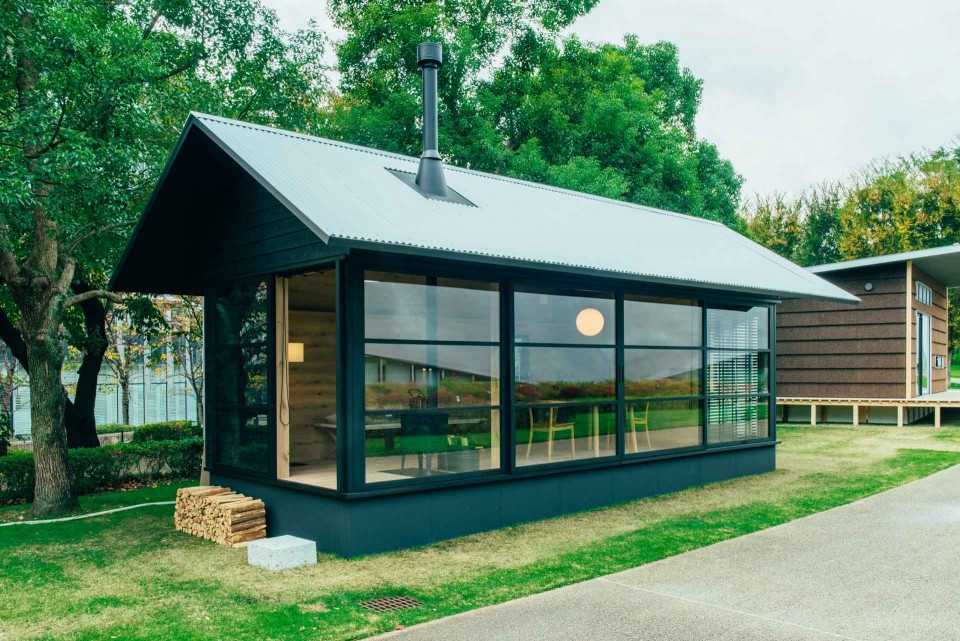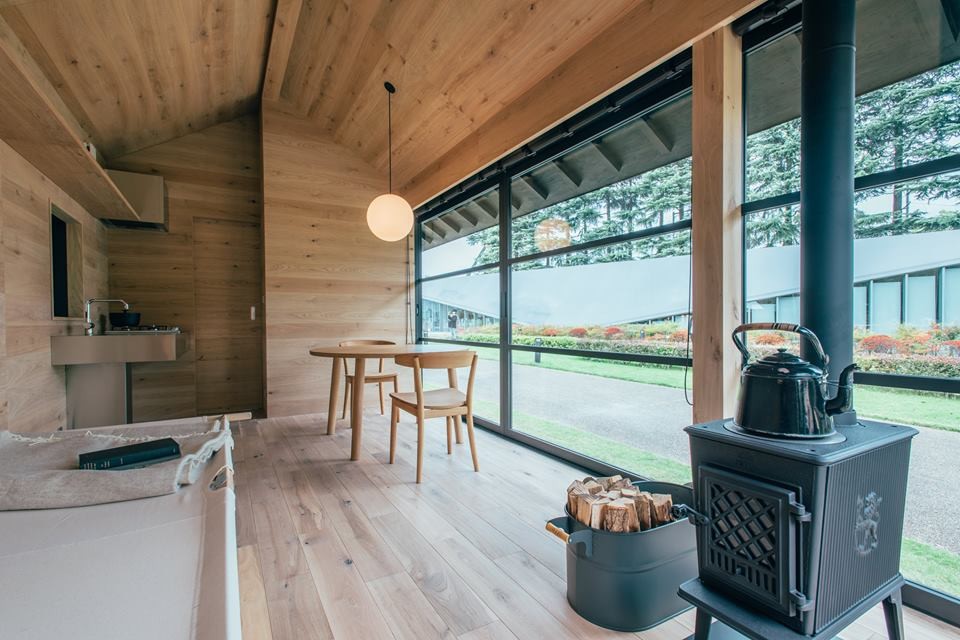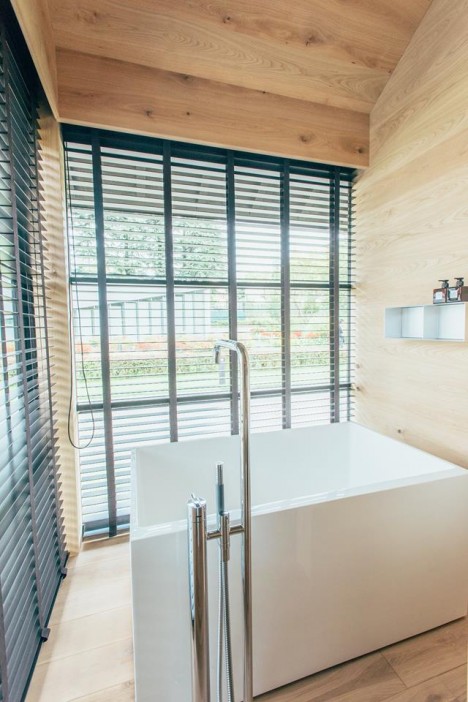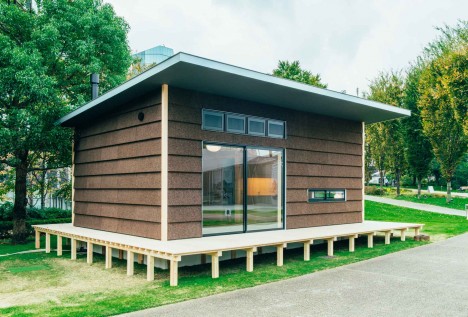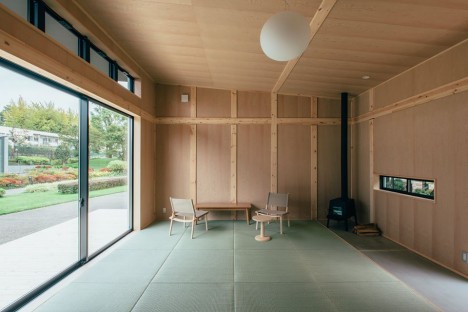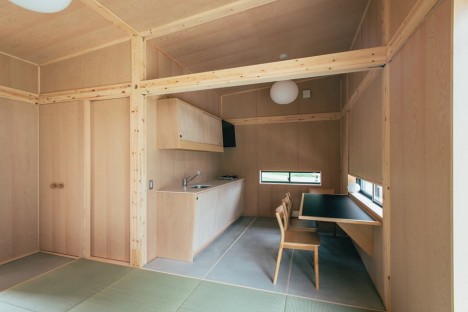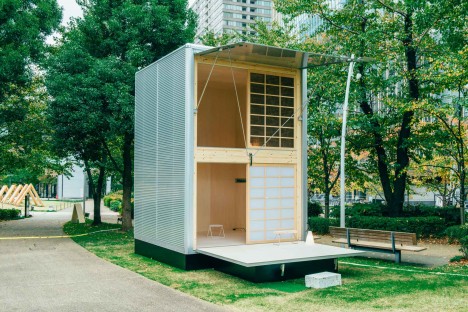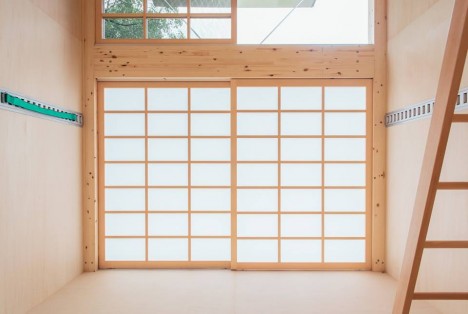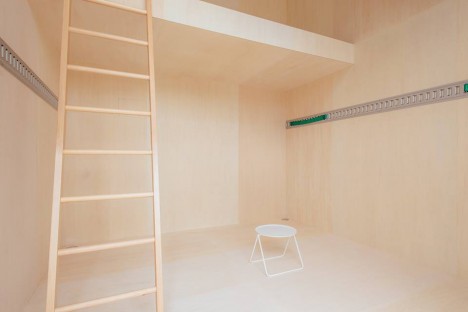Three designers contributing to the Muji Hut project have pitched their tent-, cottage- and cabin-inspired ideas for tiny retreats at Tokyo Design Week, each structure borrowing lessons in simplicity from Japanese housing traditions. The spaces are intentionally essential, featuring just what one needs to relax and enjoy natural surroundings and family gatherings.
The Wooden Hut by Naoto Fukasawa is both open and cozy, with floor-to-ceiling windows, a soaking tub hidden behind a wall and a wood-burning stove to warm the interior. A wood-burning stove heats the interior, which is furnished with a cot, dining table and chairs, and kitchenette.
“When I hear the word hut, I’m attracted,” says designer Naoto Fukasawa. It’s not quite a villa but not as simple as a tent. With a small hut you can burrow into the wilderness whenever you want.”
The Cork Hut by Jasper Morrison has space for cooking, eating, gathering and sleeping, featuring a trim aesthetic with simple lines brought to life by variegated cork surfaces.
“Whenever I think about going to the country for the weekend, I start imagining a small house with everything needed for a short stay,” says Jasper Morrison.
“The dream usually collapses when I think of the complexity of building a new house, but with this project I realized there was a chance to design such a house as a product rather than a one-off.”
The Aluminum Hut by Konstantin Grcic has a small footprint to avoid the need for building permits. A ladder leads occupants up to sleeping lofts while flexible aluminum awnings protect it in transit.
“The hut is just a space — it doesn’t have to be a fully functioning place for living,” says Grcic.
“There doesn’t have to be water or electricity. It is just a space for doing something.” The trio of huts will go on sale soon, starting at approximately $25,000 USD.
